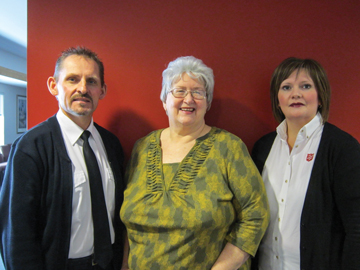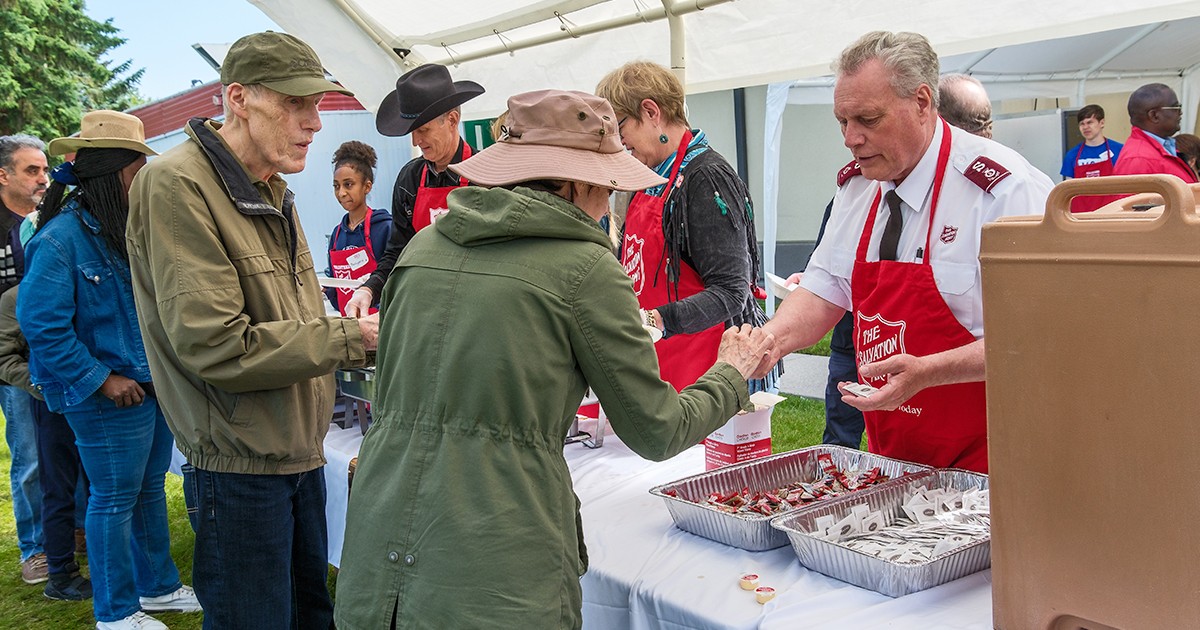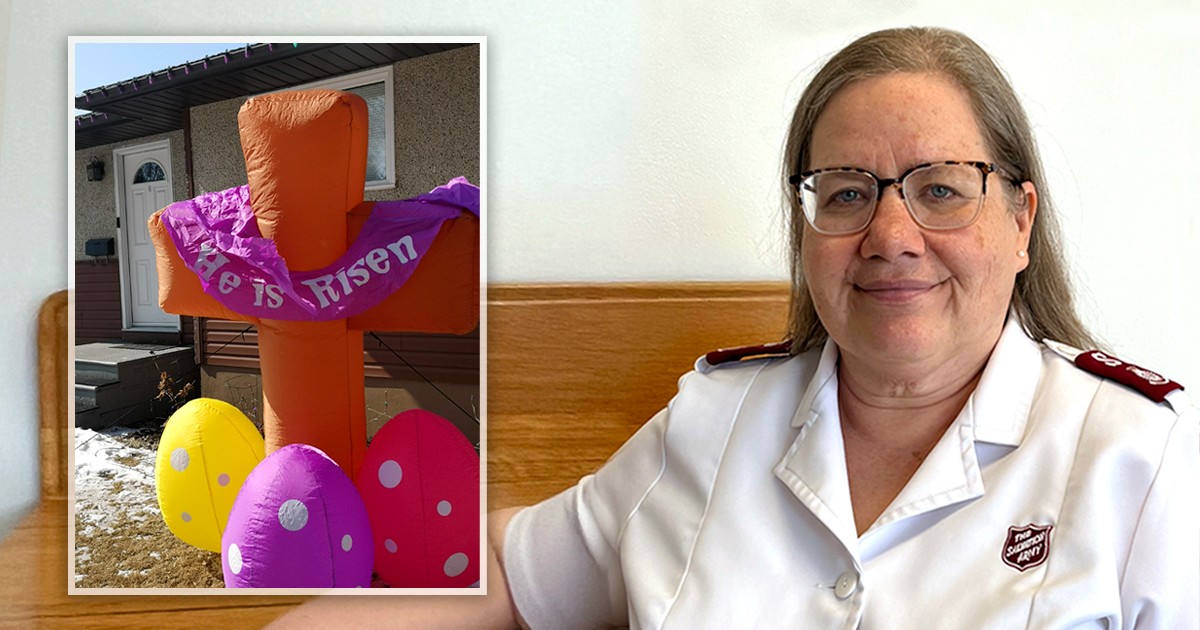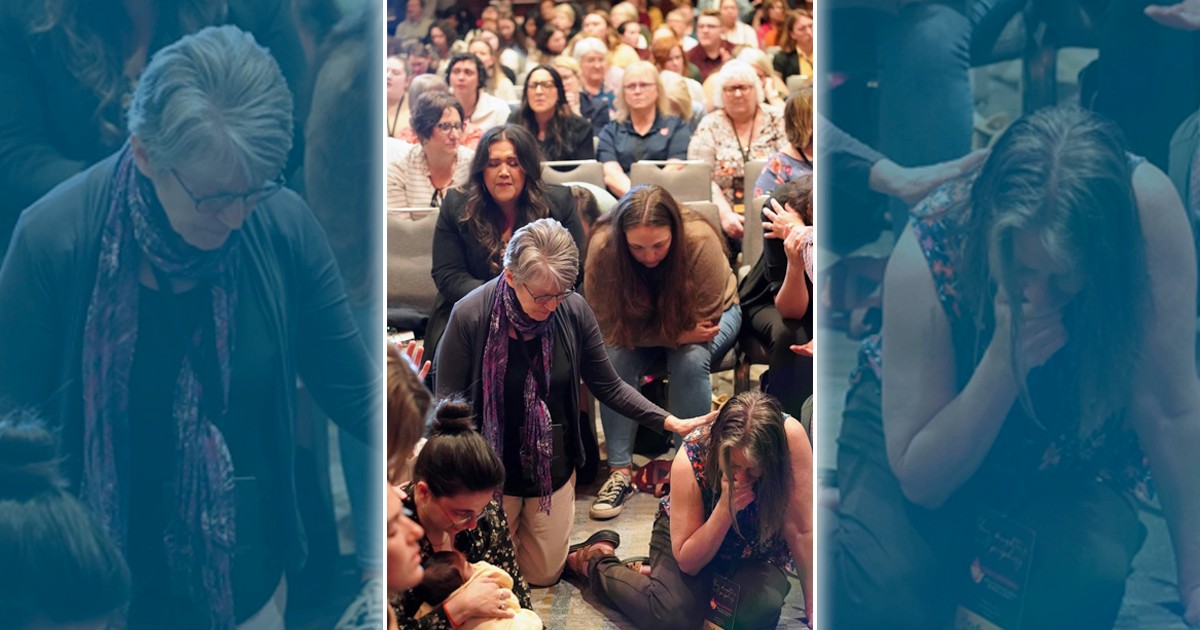
It was almost too easy. As her company's payroll administrator, Bonnie Bonnetta could quietly divert funds into her own bank account. Right or wrong didn't enter into the equation—she needed the money so she could keep gambling.
“I always said, 'I'll pay it back next week,' but it didn't happen,” she says.
By the time she was caught, Bonnetta had stolen more than $100,000 from her employer.
“Sitting in jail, I knew that I had done wrong and I deserved to be there,” she says. “And I knew that I had to turn my life around.”
Lonely Heart
Growing up, Bonnetta's home life was anything but stable. When she was born in 1946, her father was in jail, leaving her mother alone to take care of two young children. This early abandonment was just the beginning.
“My father was not dependable. You never knew if he was going to have a job from week to week, or if he was going to gamble or drink the money away,” she says. “I thought it was normal. My parents hung out with people who were the same, so I didn't know any different.”
To compensate for her father's frequent bouts of unemployment, Bonnetta's mother went to work, but it wasn't enough to keep the family out of poverty. When Bonnetta's younger sister was born, their parents sent her older brother, then five years old, to live with their grandmother because they could not afford to feed three children.
Both of Bonnetta's parents had violent tempers—especially when they were drinking—but it was her father she feared most.
“We were disciplined severely, usually with a fist,” she says. “With me, it was either my arm or stomach—somewhere where nobody was going to see the bruises—but he hit my mother in the face.”
Usually, her father came after her if she hadn't done her chores, but sometimes she just happened to be in the wrong place at the wrong time.
“You learned to dodge. You knew that if he came home and was drunk, you had to disappear,” she remembers. “I had a lock on my bedroom door. He would pound on the door, and he could have broken it down, but my mother would get in the way and she would take the abuse.”
As she grew older, the abuse started to take its toll, leaving Bonnetta with emotional and physical scars.
“I became very withdrawn and introverted, and I didn't make friends easily,” she says. “I didn't want anybody to see what my family was like.”
Dream Home
At 19 years old, Bonnetta was married, finally escaping the turmoil of living with her parents and sister.
They had been dating for almost five years. In that time, a whole new world had opened up for Bonnetta. “His was a totally different, normal family,” she says. “There was no fighting, no abuse. I wondered, 'Is this what life is really supposed to be like?' ”
Her husband's mother and father greeted her with open arms. “It was like having a new family,” she adds.
After a year of being married, she and her husband bought a brand-new house and watched it being built from the ground up. “We thought we'd died and gone to heaven,” she says. “It felt so good to own something, to look after it.”
Even still, traces of her upbringing remained. It was years before Bonnetta felt completely at ease in her marriage. “For a long time, if my husband got angry and raised his voice, I would cower,” she says. “It was a gut reaction. I would shut right down and start to cry.”
Six years after she was married, Bonnetta had a daughter and then a son another five years after that. Becoming a parent was a very healing experience for Bonnetta, as she created a family that was entirely different from the one she grew up in.
“My children were my world,” she says. “I put everything into them.”
Losing Everything
 Bonnie Bonnetta with her corps officers, Captains Jim and Michelle Mercer
Bonnie Bonnetta with her corps officers, Captains Jim and Michelle Mercer
With two healthy children, a loving husband and a satisfying job as a clerk at the local municipality, Bonnetta's life was better than anything she could have imagined growing up.
“I was feeling very secure,” she says. “I loved my family and I loved the lifestyle that we had.” But in 1996, that security was taken from Bonnetta when, after 16 years of working at the municipality, she was suddenly let go. She was devastated.
“I was 50 years old,” she says. “I thought, 'Who's going to hire me?' I went into a very bad depression and my husband didn't know how to help me.”
And just when Bonnetta was at her most vulnerable, a new casino opened near her home. “I started going to the casino just to fill time, and then it became my comfort zone,” she recalls. “I could go there and nobody would talk to me. My husband wasn't there to say, 'What are you doing? Get yourself out there and get a job.' I could go there and be nobody.”
Eventually, Bonnetta did find a new job, but by that time, the gambling had a hold on her.
“I would stop in for an hour or two on the way home from work,” she says. “Most of the time, my husband didn't know where I was—I always had an excuse.”
Bonnetta acquired multiple credit cards, spending more and more while making sure that she got to the mailbox first so that her husband wouldn't find the bills. Finally, there was no money left. Desperate, she began stealing money from her workplace.
“When it got to the point where I knew I could never pay it back, I realized that the only way I could stop taking the money was to quit,” she says.
After she left, it wasn't long before her employer discovered the theft.
As she came to grips with the seriousness of her actions, Bonnetta's depression went haywire again and she tried to commit suicide with a cocktail of prescription drugs and alcohol. She is thankful now that her attempt was unsuccessful.
Bonnetta was sentenced to a year in prison for her crime but served seven weeks because she couldn't get the counselling she needed in prison. Though divorced from her husband, she received invaluable support from her two children, who helped her through this darkest period.
“They stood by me,” she says. “They were my saving grace.”
Rededication
Throughout her life, Bonnetta had very little experience with church—she went a few times with a friend as a teenager just to get away from her family. But after she came home from prison, she made an astonishing discovery: as a child, Bonnetta had been dedicated at the Long Branch Corps in Toronto (now Lakeshore Community Church). She came across the dedication certificate while going through some old papers.
“When I found it, I thought, 'Maybe there's someone at The Salvation Army that I can talk to,' ” she remembers. She called the corps in Orillia, Ont., and told the family services co-ordinator, Kathy Aitken, that she was interested in volunteering. Bonnetta was welcomed in and soon was volunteering in the office two days a week.
On Thursdays, the corps held devotions, which all staff were invited to attend. The fourth time she attended, Bonnetta had a life-changing experience.
“Captain Jim Mercer, the corps officer, was reading from the Bible, and all of the sudden it hit me: I felt this real peace and joy come over me,” she says. After devotions, she shared her story with Captain Mercer and told him what had just happened.
“I said to him, 'I came here because I found my dedication certificate, and I know God's telling me something,' ” she says. “ 'He's telling me I have to be here.' ”
Bonnetta started going to church every week and joined a Bible study. After attending the corps for two years, she decided to become a soldier in August 2012.
“I wanted to become a soldier because I felt that I needed to fully belong—just coming to church wasn't enough,” she says.
The day she received her Soldier's Covenant was significant, not only because she was officially joining the Army, but also because it was the first time she gave her testimony.
“I was ready to tell the congregation what I had done, what I had gone through,” she says. “I was nervous because I didn't know how they would respond, but they were fantastic. So many people came up to me afterward and said they were moved by my story.”
Hope in Christ
The same month she became a soldier, Bonnetta was diagnosed with breast cancer. In October, she underwent surgery to have the lump removed; the following month, she was facing a triple bypass.
Despite this unexpected turn in her health, Bonnetta felt at peace.
“I went through both surgeries knowing that I was in God's hands, and he was going to look after me,” she says.
For the next year, Bonnetta will undergo chemo treatments every three weeks, followed by intense radiation therapy—a challenge she takes in stride.
“Three years ago, I never would have been able to deal with this,” she says. “I wasn't strong before but I am now, and I'm strong because I have Christ in my life.”
Photo: © Anton Balazh, shutterstock.com










Leave a Comment